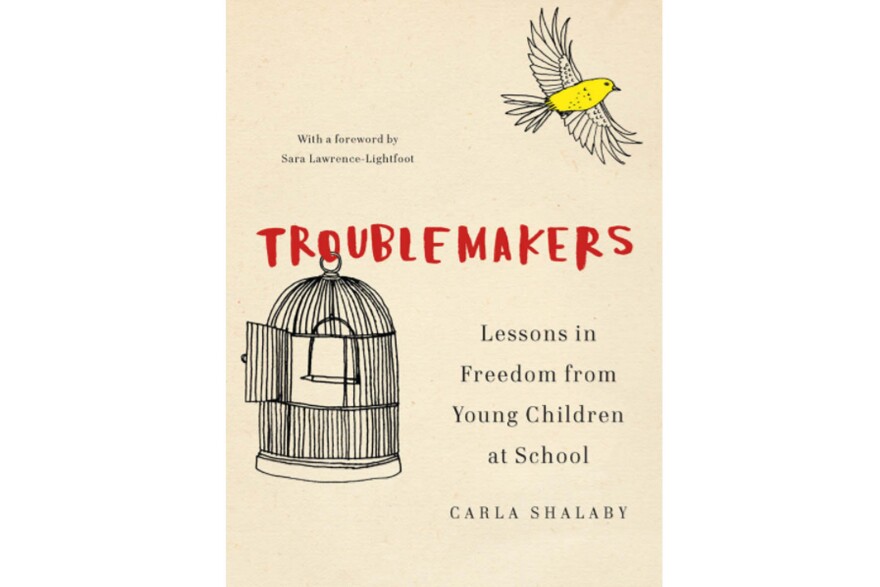These chapters really spoke to me. I related immensely to the author's situation. I have a student in my student-teaching classroom who has difficulty controlling himself and behaving. Just like Anthony in the book, my student refuses to follow directions and the expected rules of a school. So, I was lost on what to do with him and how to help him. It's not that he chooses to be that way; he has difficulty controlling his pent-up energy. He's also a super smart kid, ahead of most other students in his class. I remember many times when he would call me over for assistance, but when I started helping, he would fly through the assignments. I barely spoke, and he knew exactly what to do when I sat with him. He may have some attention issues in both ways. He craves attention and has a hard time paying attention. I find myself relating to him. When I was younger, I was also not the most remarkable student. I would crave the attention of everyone in the room. I was a troublemaker who didn't care for what the class was doing. So, I understand his situation. There are ways to help him; I just need to dig deeper into myself and figure out what I needed when I was that young. I know he's a good kid with tremendous potential, and I believe I can reach him with the right tactics in the classroom. 
Thursday, March 20, 2025
Troublemakers FIX
Friday, March 7, 2025
Classroom Tour Analysis FIX
https://docs.google.com/document/d/1CQWoLs0wByj1TQwjAsjqT6oa9bVEgISg14eZhjZNgEk/edit?tab=t.0

Intro to Cultural Pedagogy FIX
Bringing cultural pedagogy into the classroom is crucial because it creates a learning environment where all students feel seen, valued, and respected. Learning becomes more meaningful and engaging when educators connect lessons to students’ cultural backgrounds and real-life experiences. It helps students develop critical thinking skills by encouraging them to explore different perspectives and question the world around them. Plus, it promotes fairness in education by addressing biases and ensuring every student has an equal chance of success. Ultimately, cultural pedagogy isn’t just about better academic outcomes—it’s about preparing students to navigate a diverse world with empathy, confidence, and a sense of belonging.

Thursday, March 6, 2025
Other People's Children FIX
In "Other People's Children," Lisa Delpit convincingly argues that the education system often overlooks and marginalizes students of color, particularly African American children, by disregarding their cultural backgrounds. Her perspective sheds light on how schools tend to favor mainstream artistic norms and, as a result, label students of color as "deficient" when their ways of thinking or communicating don’t align with those norms. This creates unnecessary barriers to their academic success, highlighting the crucial need for cultural inclusivity in education.
Delpit also argues that teachers should help students navigate their home culture and the dominant culture without dismissing either. Educators can better support their learning by acknowledging and integrating students' cultural backgrounds into the classroom. She challenges the idea that students of color are inherently less capable and encourages a shift in focus to the structural barriers they face, fostering a more empathetic and understanding approach to education.
Ultimately, I agree with Delpit’s call for more inclusive and culturally responsive teaching, as it’s critical to addressing the inequalities in education and ensuring that all students have the resources and support they need to succeed.
Semester Review FIX
This semester has opened my eyes to what it means to work with kids and be an intentional, thoughtful teacher. I've learned so much fro...
-
These chapters really spoke to me. I related immensely to the author's situation. I have a student in my student-teaching classroom who...
-
I find it interesting that most schools in poorer sections of cities were mainly attended by African Americans and Hispanics. What does tha...
-
In "Other People's Children," Lisa Delpit convincingly argues that the education system often overlooks and marginalizes stud...

